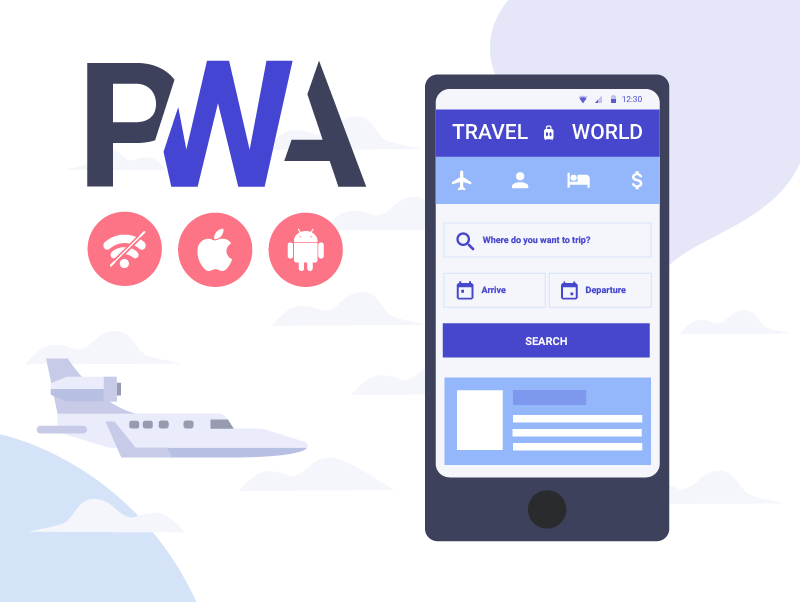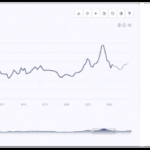In the fast-changing travel industry, leveraging technology to improve consumer experience and operational efficiency is critical. Progressive Web Apps (PWAs) have emerged as a game changer in this field, providing several advantages for travel solutions. PWAs combine the finest characteristics of online and mobile applications to provide quick, dependable, and engaging experiences that are changing how travelers connect with their services. This in-depth examination will dive into the benefits of PWAs for travel, demonstrating how they can transform travel app development solutions for both businesses and users. From boosting accessibility to increasing user engagement, PWAs are transforming the landscape of digital travel services.
Understanding Progressive Web Apps
Before we dive into the benefits, it’s important to understand what Progressive Web Apps are. PWAs are web applications designed to deliver a native app-like experience using modern web capabilities. They leverage technologies such as HTML, CSS, and JavaScript to provide users with a fast, reliable, and engaging experience. PWAs combine the best features of web and mobile apps, offering a seamless, cross-platform solution.
Key Benefits of PWAs for Travel Solutions
1. Enhanced User Experience
1.1. Speed and Performance
PWAs are designed for speed. They utilize service workers to cache resources and enable offline functionality, leading to significantly faster load times. For travelers, this means instant access to essential information like booking confirmations, itineraries, and travel updates, even in areas with poor internet connectivity.
1.2. Responsive Design
PWAs are inherently responsive, adapting to various screen sizes and devices. Whether a user accesses the travel solution from a smartphone, tablet, or desktop, the PWA adjusts its layout and functionality, ensuring a consistent and optimal experience across all platforms.
1.3. App-Like Feel
By mimicking native app features, PWAs provide an immersive experience. Features such as push notifications, home screen installation, and smooth animations enhance user engagement and satisfaction, making travelers feel like they’re using a dedicated app rather than a mobile website.
2. Improved Accessibility and Reliability
2.1. Offline Access
One of the standout features of PWAs is their ability to work offline or in low-network conditions. Travelers often find themselves in areas with spotty connectivity. PWAs ensure that users can still access crucial information like maps, booking details, and travel guides, even without an active internet connection.
2.2. Cross-Platform Compatibility
PWAs run in web browsers, making them compatible with any operating system, including Windows, macOS, iOS, and Android. This eliminates the need for developing separate native apps for different platforms, simplifying the development process and broadening the reach of travel solutions.
2.3. Reduced Data Usage
PWAs are optimized to use less data compared to traditional web apps or native apps. They load quickly and efficiently, which is particularly beneficial for users with limited data plans or in regions where internet access is expensive or unreliable.
3. Cost-Effectiveness and Efficiency
3.1. Lower Development Costs
Developing a PWA can be more cost-effective than building native apps for multiple platforms. With a single codebase for all devices, businesses can save on development and maintenance costs. Additionally, PWAs eliminate the need for app store submissions and associated fees.
3.2. Easier Updates and Maintenance
PWAs simplify updates and maintenance. Changes to the PWA are instantly reflected to all users without requiring them to download and install updates manually. This ensures that users always have access to the latest features and security improvements.
3.3. Scalability
PWAs are scalable and can handle a growing user base with ease. They are built to manage high traffic volumes efficiently, ensuring that travel solutions remain responsive and reliable as their user base expands.
4. Enhanced Engagement and User Retention
4.1. Push Notifications
PWAs can send push notifications, which are essential for keeping users informed about important updates, special offers, and reminders. For travel solutions, push notifications can alert users about flight status changes, booking confirmations, and travel tips, enhancing their overall experience.
4.2. Home Screen Installation
PWAs can be added to the home screen of a user’s device, allowing for quick access without the need to visit the web browser. This feature improves user engagement by providing easy access to the travel solution, even when offline.
4.3. Personalized User Experience
PWAs can leverage user data to provide a personalized experience. By analyzing user behavior and preferences, travel solutions can offer tailored recommendations, promotions, and content, which can lead to higher user satisfaction and retention.
5. Increased Conversion Rates
5.1. Seamless Booking Process
A smooth and fast booking process is critical for travel solutions. PWAs enhance the booking experience by minimizing loading times and reducing friction in the user journey. This can lead to higher conversion rates, as users are more likely to complete their bookings when the process is quick and easy.
5.2. Engaging User Interface
PWAs offer a polished and engaging user interface that can captivate users and encourage them to explore further. By providing a visually appealing and intuitive interface, travel solutions can enhance user satisfaction and increase the likelihood of repeat bookings.
5.3. Streamlined Checkout Experience
The streamlined checkout process of a PWA helps reduce cart abandonment rates. With features like autofill, one-click payments, and easy form completion, users can complete their transactions swiftly, resulting in higher sales and customer satisfaction.
6. Enhanced Security
6.1. HTTPS Protocol
PWAs operate over HTTPS, ensuring that all data transmitted between the user and the server is encrypted and secure. This is particularly important for handling sensitive information such as payment details and personal data in travel solutions.
6.2. Secure Data Storage
PWAs utilize secure storage mechanisms to protect user data. This includes encrypting data stored on the device and using secure APIs for data access, reducing the risk of data breaches and enhancing user trust.
7. Global Reach and Accessibility
7.1. Internationalization and Localization
PWAs can be easily adapted to different languages and regions. By offering localized content and support for multiple languages, travel solutions can cater to a global audience and provide a more personalized experience for users from various cultural backgrounds.
7.2. Broad Device Compatibility
Since PWAs are accessible through web browsers, they can reach users on a wide range of devices, from smartphones to desktop computers. This broad compatibility ensures that travel solutions are accessible to users regardless of their device or operating system.
Real-World Examples of PWAs in Travel Solutions
1. Travel Booking Platforms
Travel booking platforms that use PWAs can offer users a seamless booking experience with fast load times and offline access. For example, a travel booking website built as a PWA can allow users to browse destinations, check availability, and complete bookings even in areas with poor connectivity.
2. Airline Apps
Airlines can benefit from PWAs by providing passengers with real-time flight information, booking management, and boarding passes. PWAs can ensure that users receive timely updates and access to their travel documents, enhancing their overall travel experience.
3. Local Travel Guides
Local travel guides and city exploration apps can use PWAs to offer offline access to maps, attraction information, and local recommendations. This ensures that travelers can navigate and explore new cities without needing a constant internet connection.
Conclusion
Progressive Web Apps represent a key improvement in web technology, offering several advantages for travel solutions. From improved user experience and accessibility to lowering development costs, and improving engagement, PWAs provide a versatile and powerful tool for modern travel organizations. By embracing PWA features, travel solutions can provide a smooth, efficient, and pleasurable experience for users, eventually leading to increased satisfaction and growth in the competitive travel market.
Whether you’re creating a new travel app or improving an existing one, using PWAs might be a game changer that positions your travel business at the forefront of technology and user experience.




